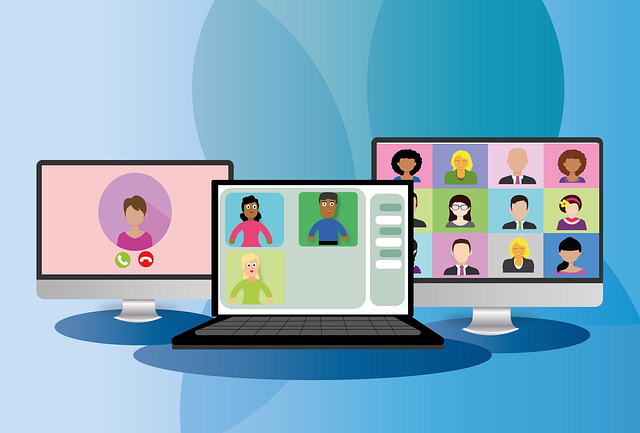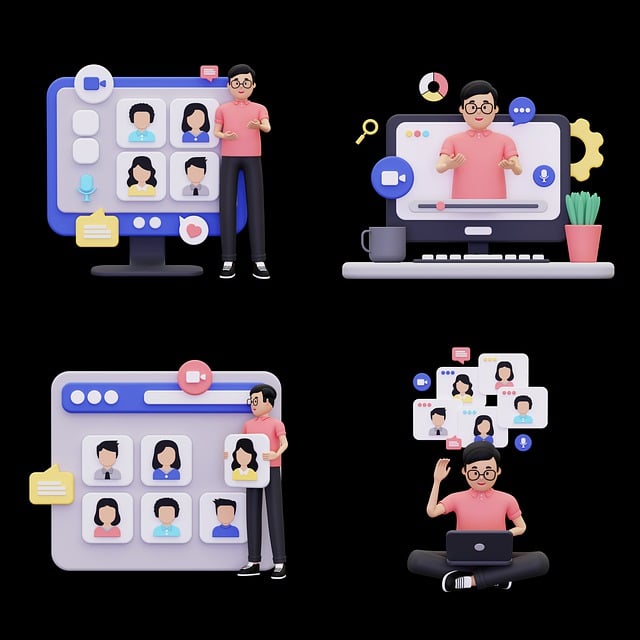
Private Internet Access (PIA) and Confidential Computing are essential tools in ensuring the privacy and security of medical data and research in the digital age. PIA provides robust encryption and IP masking to secure sensitive communications, safeguarding patient confidentiality and data integrity against cyber threats. The integration of PIA with confidential computing environments further protects the personal information of medical influencers on social media, allowing them to collaborate securely without compromising their privacy or data. Confidential Computing for Social Media Influencers is particularly important as it ensures that sensitive data processing occurs in a secure, isolated environment within cloud platforms, thus maintaining data confidentiality and integrity while facilitating global medical research collaboration. This approach not only protects personal information but also upholds the necessary security framework for handling vast amounts of data, which is increasingly critical in the era of Big Data. By adopting these technologies, researchers can comply with international data protection laws like HIPAA and GDPR, ensuring ethical standards are met and enhancing public trust in digital interactions related to medical research.
medical researchers worldwide are increasingly reliant on digital platforms for data exchange and collaboration. With the rise of big data, ensuring the security and integrity of research information is paramount. This article explores how Private Internet Access (PIA) serves as a critical shield for safeguarding sensitive medical data. It also delves into the burgeoning need for confidential computing solutions tailored to social media influencers, highlighting its role in fortifying data privacy. Furthermore, we examine how PIA fosters global research collaboration by navigating the complex digital landscape. Understanding the importance of secure data sharing practices is crucial for medical researchers operating within this vast and interconnected field.
- Leveraging Private Internet Access: A Critical Shield for Medical Researchers' Data Integrity
- The Rise of Confidential Computing: An Essential Tool for Social Media Influencers
- Navigating the Digital Maze: How Private Internet Access Enhances Global Research Collaboration
- Securely Sharing Sensitive Data: Best Practices for Medical Researchers in the Age of Big Data
Leveraging Private Internet Access: A Critical Shield for Medical Researchers' Data Integrity

Medical researchers across the globe rely on the integrity and confidentiality of data to advance scientific understanding and improve patient outcomes. With the increasing digitization of healthcare information, the need for robust security measures is paramount. Private Internet Access (PIA) emerges as a critical shield for safeguarding the sensitive data handled by medical professionals. By encrypting internet traffic and masking IP addresses, PIA ensures that researchers’ communications and data remain private and secure from potential threats. This layer of protection is crucial when accessing and sharing research findings over the internet, where data breaches could compromise patient privacy and research integrity. Furthermore, the integration of Private Internet Access with confidential computing environments further bolsters security, allowing social media influencers, including those in the medical field, to safely engage with online platforms without exposing sensitive information. This dual approach to privacy and security not only protects individual researchers but also contributes to the broader ecosystem of trust and reliability essential for medical research collaboration on a global scale.
The Rise of Confidential Computing: An Essential Tool for Social Media Influencers

Confidential computing has emerged as a pivotal technology in safeguarding the sensitive data of social media influencers, whose digital footprints are both extensive and highly personal. As influencers share their lives with vast audiences, maintaining privacy and data security becomes increasingly critical. Confidential computing ensures that data processing occurs within a secure environment isolated from the rest of the cloud infrastructure, making it an essential tool for these public figures. This technology not only protects data at rest but also during computation, ensuring that even as influencers collaborate with brands or analyze audience engagement, their data cannot be accessed by unauthorized parties. The adoption of confidential computing allows influencers to leverage the power of cloud platforms without exposing personal information or trade secrets, thereby mitigating the risks associated with data breaches and unauthorized data access. As the influence of social media continues to shape public opinion and cultural trends, the need for robust data protection mechanisms like confidential computing becomes paramount, ensuring that the digital interactions between influencers and their audiences remain private and secure.
Navigating the Digital Maze: How Private Internet Access Enhances Global Research Collaboration

Global research, particularly in the medical field, is increasingly reliant on the vast amounts of data accessible through the internet. As researchers across disciplines collaborate to innovate and solve complex health challenges, they must navigate a digital maze that includes privacy concerns, data security issues, and the need for seamless access to information. Private Internet Access (PIA) plays a pivotal role in this context by providing robust encryption, secure VPN gateways, and a no-logs policy that upholds the confidentiality of researchers’ activities. By using PIA, medical researchers worldwide can safeguard their communications, maintain the privacy of sensitive data shared through social media platforms, and ensure compliance with various international data protection regulations. This not only protects intellectual property but also fosters a secure environment for collaboration. The integration of confidential computing for social media influencers is an emerging need that aligns with PIA’s capabilities. As these influencers delve into research-related content, maintaining the integrity and privacy of their data interactions becomes imperative. PIA’s suite of security tools offers a solution that allows for the secure sharing of insights and findings without compromising individual or organizational privacy, thus enhancing global research collaboration and setting a new standard for data integrity in the digital age.
Securely Sharing Sensitive Data: Best Practices for Medical Researchers in the Age of Big Data

Medical researchers handling sensitive data in the era of Big Data must navigate a complex landscape of security and privacy concerns. With the increasing reliance on digital platforms for data collection, sharing, and analysis, it is imperative that these researchers adopt robust security measures to protect patient confidentiality and intellectual property. One of the most critical practices in this domain is the utilization of confidential computing, which allows for data processing while ensuring that sensitive information remains encrypted throughout the computational process. This approach is not only vital for protecting against unauthorized access but also for maintaining data integrity and availability.
The advent of confidential computing presents a significant opportunity for medical researchers to securely collaborate on global projects without compromising patient privacy or data security. By leveraging advanced encryption techniques and secure multi-party computation, researchers can share insights and findings across borders while keeping sensitive data shielded from prying eyes. This not only fosters innovation but also complies with stringent regulatory requirements such as HIPAA, GDPR, and others that govern the handling of personal health information. For medical researchers who engage with social media influencers to disseminate research findings or crowdsource data, confidential computing for these influencers is a needed development to ensure that the data exchanged between researchers and the public remains secure and private. Embracing these best practices is essential for upholding ethical standards in research and safeguarding the digital footprint of all parties involved.
In conclusion, the deployment of Private Internet Access (PIA) has become an indispensable asset for medical researchers worldwide. It not only safeguards data integrity but also facilitates global collaboration by navigating the complex digital landscape. The integration of confidential computing further underscores its significance, particularly in an era where social media influencers are increasingly utilizing this technology to protect their sensitive information. As the demands on data security continue to grow, PIA’s role in maintaining the confidentiality and privacy of research data is paramount. Medical researchers must adopt these best practices to ensure that their work remains secure and accessible, fostering a global community where innovation can flourish without compromise.







